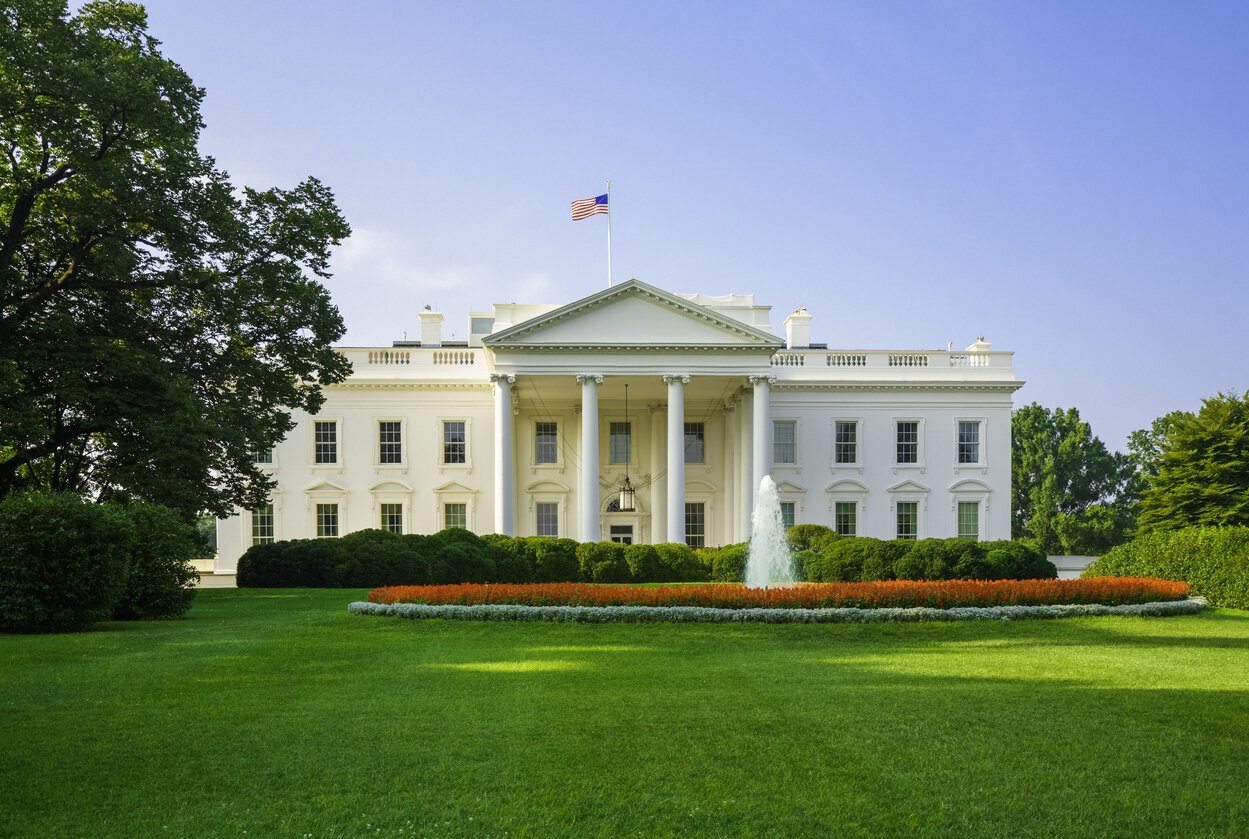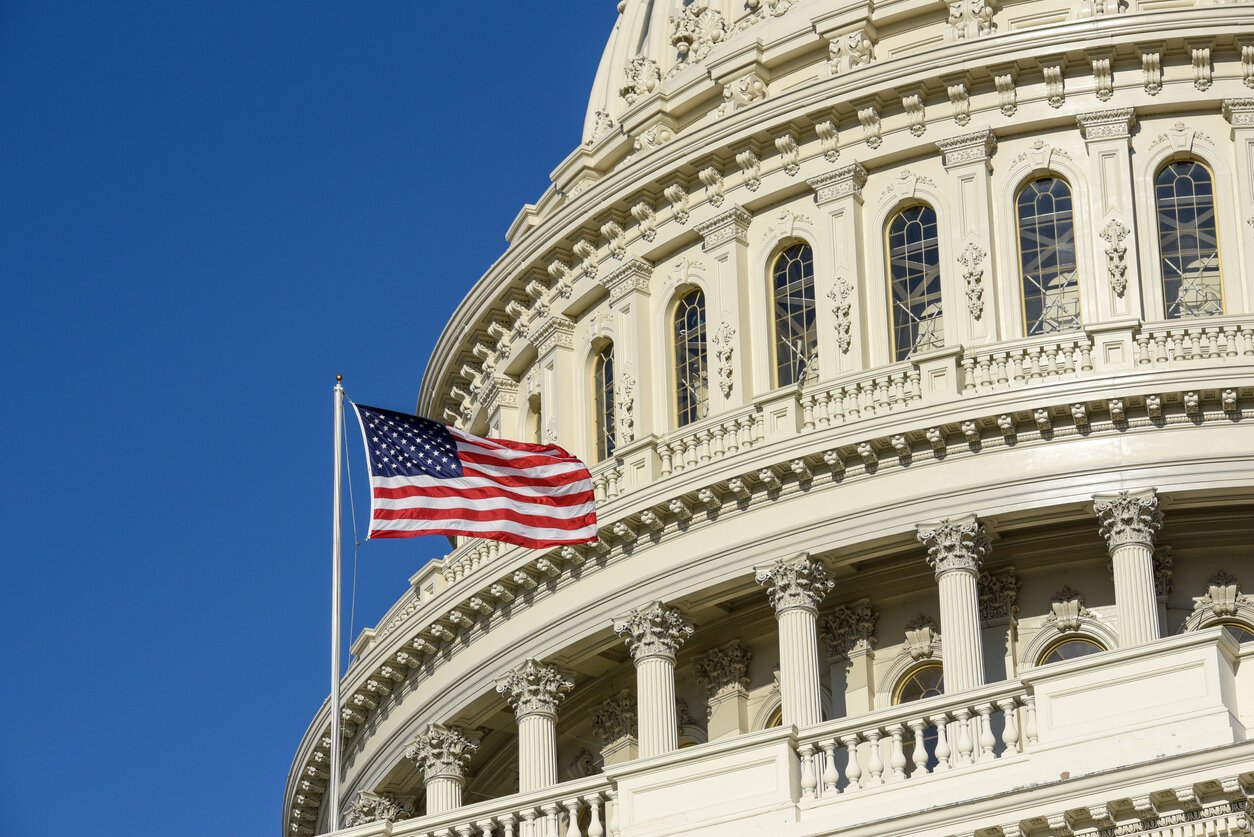New Rule Expands Buy Indian Act, Advances Equity Executive Order
The Interior Department Indian Affairs Office published a final rule in the Federal Register last week to increase Tribal businesses' access to funding and procurement preferences.
OPM Bolsters Federal Employees Voting, Administration Seeks Same for Native Communities
In March 2021, President Biden issued an executive order (E.O. 14019) to expand access to voting. New Administration guidance indicates that voting is now more than just an election day event.
White House Releases Proposed Budget for FY 2023, 4.6% Pay Raise for Federal Employees
President Biden’s $5.8 trillion budget proposal for fiscal year (FY) 2023 aims to give every Cabinet department a budget increase while reducing the federal deficit that has skyrocketed in recent years.

President Biden Signs EO Promoting Diversity and Inclusion in Federal Agencies
Last week, President Joe Biden signed an Executive Order on Diversity, Equity, Inclusion, and Accessibility in the Federal Workforce. The new order directs agencies on how to improve diversity, equity, inclusion, and accessibility among their employees.

American Rescue Plan Expands Benefits for Federal Workforce
On March 11, 2021, President Biden signed the American Rescue Plan Act of 2021, a $1.9 trillion COVID-19 relief package that expands benefits for the federal workforce and Americans.

Call for Nominations for FY2021 Presidential Rank Awards
The Office of Personnel Management (OPM) announced in a March 3, 2021 memo that it would be opening nominations for the FY2021 Presidential Rank Awards (PRA). The awards program was suspended in 2020 by the prior administration. The PRA is one of the most prestigious awards that can be given to a career civil servant and was established in 1978.

2021 US Citizenship Act Would Expand Federal Hiring and Workforce Reforms for Homeland Security Agencies
President Joe Biden and his administration recently proposed the 2021 U.S. Citizenship Act to Congress, where Democrats have introduced it in both chambers. The act would revamp the immigration system in the United States and reverse many immigration initiatives that were introduced by the Trump administration. The plan includes several reforms aimed at improving the homeland security workforce.

President Biden’s Memo Calls for a Better-Equipped National Security Workforce
On February 4, 2021, President Joe Biden released a national security memo that focused on revitalizing American foreign policy and restoring the national security workforce, institutions, and partnerships. He also recently appeared at the Department of State to send a message on foreign policy to the workforce, saying, “I want the people who work in this building, and our embassies and consulates around the world, to know I value your expertise, and I respect you. And I will have your back.”

Talks on Omnibus Spending Bill Between Chambers of Congress Begin
In the House and the Senate, initial talks for an omnibus appropriations bill have begun. The goal of these initial talks is to agree on top-line spending levels that will be included. Congress has until December 11, 2020 to fund the government and both Speaker of the House Nancy Pelosi (D-CA) and Senate Majority Leader Mitch McConnell (R-KY) have stated that they do not want another continuing resolution and would rather have an appropriations package ready to go.

Senate Releases Spending Bills for Fiscal Year 2021
Senate appropriators released all 12 of their fiscal year 2021 spending bills on the morning of November 10, 2020. Lawmakers have until December 11, 2020 to secure government spending and avoid a federal shutdown. Both Senate Majority Leader Mitch McConnell (R-KY) and Speaker of the House Nancy Pelosi (D-CA) have called for a new omnibus spending bill, which would fund all government agencies in a single large package, rather than another continuing resolution that only funds the government temporarily at previous levels.

Avoidance of Government Shutdown Rests on Lame Duck Spending Deal
As lawmakers approach the December 11, 2020 stopgap funding deadline, Speaker of the House Nancy Pelosi (D-CA) and Secretary of the Treasury Steve Mnuchin remain stuck on several issues relating to COVID-19 and funding of the government. If Congress and the White House are unable to reach another stopgap funding deal by December 11, then a partial government shutdown could occur.

Executive Order Creates New Class of Federal Employees
President Trump signed an executive order on October 21, 2020 creating a new classification for federal employees. Per the order, employees that are in confidential, policy making positions would be categorized as Schedule F employees and would not be subject to traditional Title 5 workplace protections. These employees would also be barred from organizing against or appealing the administration. The order grants agency leaders broad discretion to hire and fire individuals in this schedule.

Payroll Tax Deferral Program Leaves Federal Employees Seeking Answers
The White House recently announced an executive order that authorizes employers to defer the Social Security payroll tax from September 1, 2020 through the end of the year for employees who make less than $3,999 per biweekly pay period, known as a payroll tax deferral. This new order has left many agencies and employees with various questions like whether employees can opt-in or out of the program and what happens to federal employees who leave their agencies before or during the window of repayment.

Congress, White House Reach Informal Agreement to Prevent Government Shutdown
House Speaker Nancy Pelosi (D-CA) and Secretary of the Treasury Steven Mnuchin have reportedly agreed to a stopgap, government-wide funding bill for federal agencies. This informal consensus would avoid a government shutdown in October and extend funding at fiscal year 2020 levels for federal agencies until at least the November 3, 2020 election.

White House Issues Formal Veto Threat Against House Appropriations Legislation
On Friday, the House passed a spending package for a majority of the federal government. The day before, the White House Office of Management and Budget (OMB) issued a formal notice announcing plans to veto the legislation, H.R. 7617, if it were to arrive on the president’s desk for signature.

White House Issues Executive Order on Federal Hiring
On Friday, President Trump signed an executive order on Modernizing and Reforming the Assessment and Hiring of Federal Job Candidates. The order calls upon agencies to increase use of skills assessments and interviews with subject matter experts in the hiring process, with less of an emphasis placed on degree requirements. The goal, according to the Trump Administration, is to broaden the pool of potential candidates and create a more equitable hiring process.

